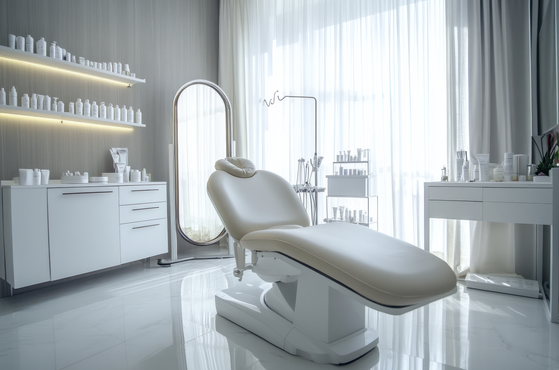Retail’s battle with ‘dupe’ culture — how brands like Lululemon are fighting back

We explore recent examples of how brands are responding to dupe culture and outline practical steps that retail businesses can take to protect their brand.
Read more
We make the difference. Talk to us: 0333 004 4488 | hello@brabners.com
AuthorsHewi Ma
4 min read

It can be common for practitioners in the beauty and aesthetics industry to operate from shared spaces. How can ‘landlord’ practitioners ensure this arrangement is properly defined?
Here, Legal Director Hewi Ma and Paralegal Rebecca Nixon explore the issues to consider when renting a room to an aesthetic practitioner.
It’s beneficial for both parties to have a written record that sets out how the property is to be used. The record will set out your relationship (including any repairing obligations) and agree a date when the property will be returned.
Under the Landlord and Tenant Act 1954, an undocumented tenant can acquire statutory rights of occupation. This protects their tenancy and - in some cases - the tenant will automatically be entitled to a new tenancy on similar terms. Thereafter, the tenancy can only be terminated in limited circumstances. For a landlord, the situation can become frustrating and costly.
Occupancy of business premises can be documented in one of the following ways:
If you occupy the property under a lease it may prevent you from sharing occupation of the premises — or even subletting all or part of them. Entering into such an agreement would be a breach. If your lease does permit sharing or subletting you may still need to obtain your landlord’s formal consent.
It’s important to also consider any planning permission. This is required if there is a change in the purposes or circumstances in which land or buildings are used and the change constitutes a material change of use.
If you rent out a room, there is no legal requirement for you to police the activities of your tenant. However, you should ensure that you have documented in your agreement with the tenant that they must only use the property in accordance with the terms of the agreement, must not use the property for any illegal purposes, will comply with all laws and any applicable registration.
The tenant practitioner will operate independently from your business and it will be their responsibility to ensure that they are following Government guidance on registration.
From a regulatory perspective, the Health and Care Act 2022 gave powers to the Government to introduce regulations to licence aesthetic practitioners who provide cosmetic procedures in England. As yet, the Government hasn’t set out any licensing requirements for aesthetic practitioners but once in force, a practitioner will be committing an offence if they provide particular procedures without a licence.
These include:
The Government’s plans include the implementation of licensing requirements not only for practitioners but also for premises. If those requirements are brought into force, then landlords should anticipate needing to conduct more comprehensive due diligence on their tenants.
Our beauty and fashion team is following the development of the Government’s proposed licensing regime and can advise on the applicable requirements, for landlords and beauticians alike, as they come into force.
If you need support with navigating room rentals or drawing up an agreement, talk to us.

We explore recent examples of how brands are responding to dupe culture and outline practical steps that retail businesses can take to protect their brand.
Read more

Here, Thorrun Govind, Solicitor in our regulatory and professional conduct team and practising pharmacist, and Hannah Fawcett, Partner and lead of our beauty and fashion team — outline how aesthetic practitioners can ensure that they stay compliant.
Read more

There are several considerations that practitioners offering these services must remain mindful of to adhere to professional standards and prioritise patient safety.
Read more